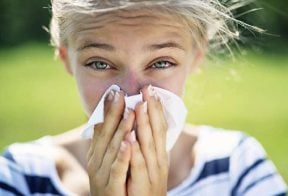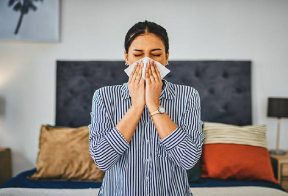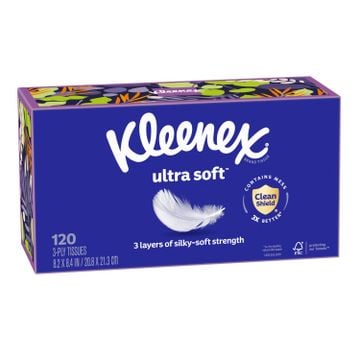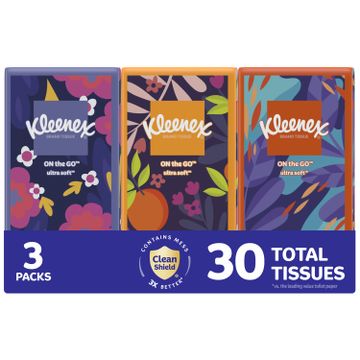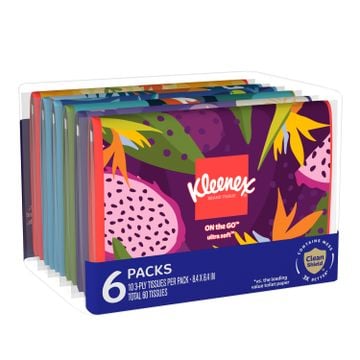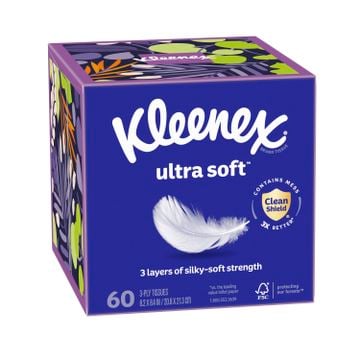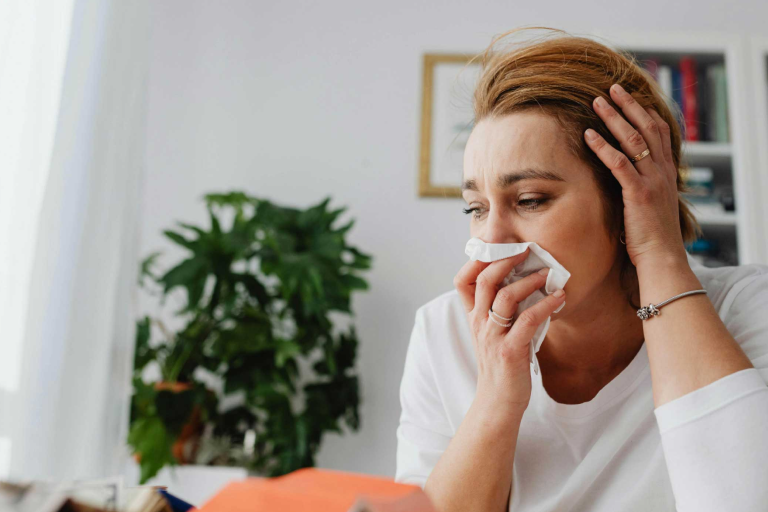
Cold season is upon us and that means tons of sneezing, sniffles, fevers, and overall achiness. However, sometimes these symptoms aren’t a cold at all; they’re allergies.
Understanding the differences between the two can help you figure out whether spring pollen or fall dander has irritated your allergies, or if you’ve caught a cold. Read on as we share more about the differences between allergies or a cold as well as more info to help you find relief.
The Difference Between Allergies and a Cold
Specific cold and allergy symptoms as well as their seriousness, duration, and the time of year can tell you what you’re dealing with.
You should also consider additional conditions. Since colds and allergies can affect your respiratory system, if you suffer from asthma, you’re likely to experience cold-like symptoms even when your allergies are triggered.
Symptom Check (Comparison of Allergy vs. Cold)
Cold versus allergies are what happens when your body reacts to a foreign allergen protein. This can be grass, pet hair, floral pollen, food, or medication. Usually, these allergens are harmless but if you have an allergy to a particular protein (e.g. grass) your body’s defense system will kick in, causing your immune system to overreact as a way to protect you.A cold is caused by your immune system as a response to a viral infection. When your immune system senses the virus, it will cause certain physical responses like inflammation that is working to kill the virus and heal you.
Check out the cold vs allergy symptoms chart to better understand the difference between colds and allergies.
| Symptom | Cold | Allergies |
|---|---|---|
| Fever | Yes, sometimes | No |
| Cough | Yes, usually | Sometimes |
| Sore throat | Yes | Sometimes |
| Sneezing | Yes | Yes |
| Stuffy or runny nose | Yes | Yes |
| Fatigue or Weakness | Sometimes | Sometimes |
| Itchy eyes | Not always | Yes |
| General body pain | Yes | No |
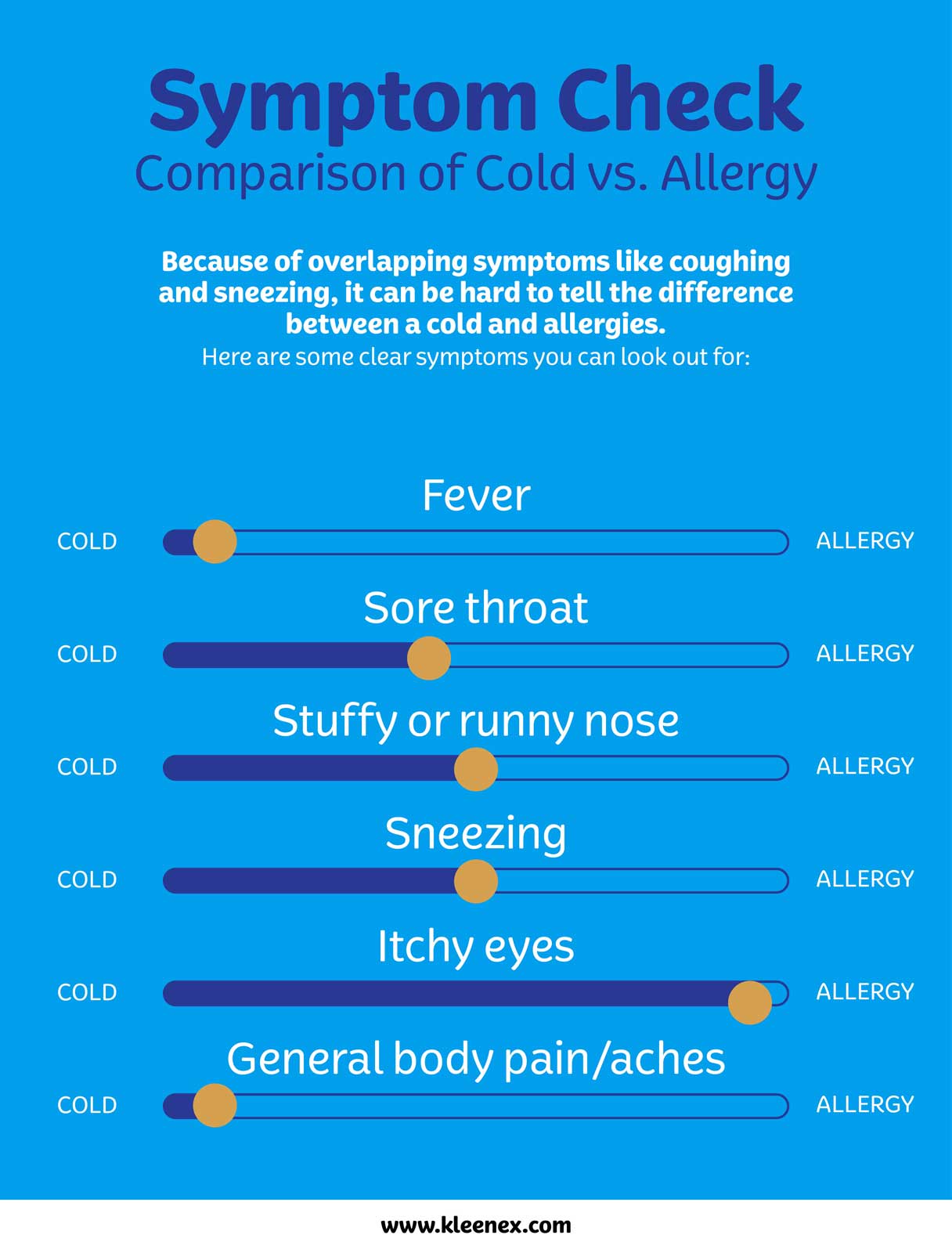
Causes of Allergies and Colds
Common Allergy Triggers
Unfortunately, allergy triggers are everywhere. To figure out what is making you feel sick, pay attention to the following:The time of year. Although allergies can occur throughout the year, you might notice that your allergies are triggered during high-pollen seasons. This can happen during the spring, summer, or fall, meaning you have seasonal allergies.
When your allergic reactions happen. Do you find yourself sneezing after cuddling your pet? Or eating a specific food? This is an easy way to figure out some of your allergy triggers.
Some of the most common allergens are hidden in your favorite foods. If you have an allergy, these foods could cause you to itch, feel nauseous, or even experience swelling of your mouth, tongue, or throat. Common food allergens include:
- Milk
- Eggs
- Wheat
- Nuts
- Shellfish
- Soy
Your pets’ saliva, fur, and skin. They carry a protein that can trigger an allergic reaction for you.
- Dust mites
- Mold
- Pollen
- Antibiotics
- Nonsteroidal Anti-inflammatory drugs (NSAIDs)
- Insulin
- Chemotherapy medication
Common Cold Causes
Common colds can happen throughout the year, although you might find yourself more vulnerable to them in the cold months. This is because being indoors during the colder months makes it easier to pass the virus between people.Because of the virus, you can experience uncomfortable symptoms in your nose, throat, and sinuses. You may be wondering: what causes the common cold? There are about 200 different viruses that can be responsible for your cold with the most common type being the rhinovirus. When someone is infected with one of these viruses and you come in contact with their saliva via sneezing, coughing, or physical contact, you become infected.
Treatment: Allergies vs. Common Cold
Treating your Seasonal Allergies
Tired of constantly clearing your throat? From itchy eyes to feeling like your body is on a sneezing schedule, allergy symptoms can be frustrating. Follow these steps to help manage your allergy symptoms and take control of your life.Get Tested for Allergies
Self-diagnosing allergies can be tricky. If you’re unsure and constantly dealing with uncomfortable symptoms, book an appointment with your local allergist. Typically, they will give you a full panel test to find the culprits responsible for your allergic reactions.This can include a scratch test, which involves pricking your skin with tiny amounts of common allergens and seeing if your skin reacts. Another option is a blood test to see if your body is creating antibodies against specific proteins.
To manage your allergy symptoms, you’ll need to avoid allergens (when possible) and use the following:
- Antihistamines: This can help calm the inflammation that histamines cause in your body to help it fight off allergens.
- Nasal spray: This will also help calm inflammation and relieve your congestion, runny nose and sneezing.
- Kleenex® On-The-Go Ultra™ Facial Tissues: These hypoallergenic tissues will come in handy when your sneezing kicks off. Dye, lotion, and fragrance free they’re perfect for helping manage your allergies without further irritating them. And they’re perfect to carry with you on the go. Just pop them in your pocket.
- Rinse your sinuses: A nasal rinse or irrigation is a cheap and helpful way to relieve your nasal congestion. By rinsing out your nasal passages with saline or sterile water you can lessen the amount of allergen-filled mucus in your nose. This will help alleviate your symptoms.
- Decongestants: These medications are helpful for unblocking your stuffy nose. Some decongestants even come as a combination of an antihistamine and a decongestant. However, you should speak to your doctor before using them as long-term use can have side effects.
- Read pollen reports: Get ahead of your city’s seasonal pollen increases and plan when to stay inside, or wear a mask, when you leave the house. This will help you avoid and reduce your allergic symptoms. Sign up for Kleenex® Pollen Pal alerts here!
Fighting the Common Cold
When you’re dealing with the common cold, it’s important to stay home and follow these tips:- Get plenty of rest
- Drink plenty of fluids: This will help loosen any mucus and congestion and keep you from becoming dehydrated.
- Take pain medications (if needed): This will help you manage your fever and provide relief for pain or headaches.
- Throat lozenges and saltwater gargle: These will help soothe your sore throat.
- Kleenex® Lotion Facial Tissues: After frequently blowing your nose it might begin to feel raw and dry. These tissues moisturize to help prevent skin irritation that will help gently soothe the dry skin around your nose.
- Petroleum jelly: When you’re not using facial tissues, using jelly is a helpful tool to keep the chapped skin around your nose and mouth moisturized. Do we know jelly does moisturize??
- Cough syrup: This can help loosen mucus and manage your congestion.
When to Seek Help from a Doctor
It’s important to seek help if your symptoms don’t improve as it can be dangerous to your health or signal that deeper health problems are happening.
Additionally, if you find that you’re regularly experiencing allergy symptoms - like sneezing or coughing - it might be time to see an allergist. With testing, they’ll help to identify your allergies and create a plan to help manage them.
